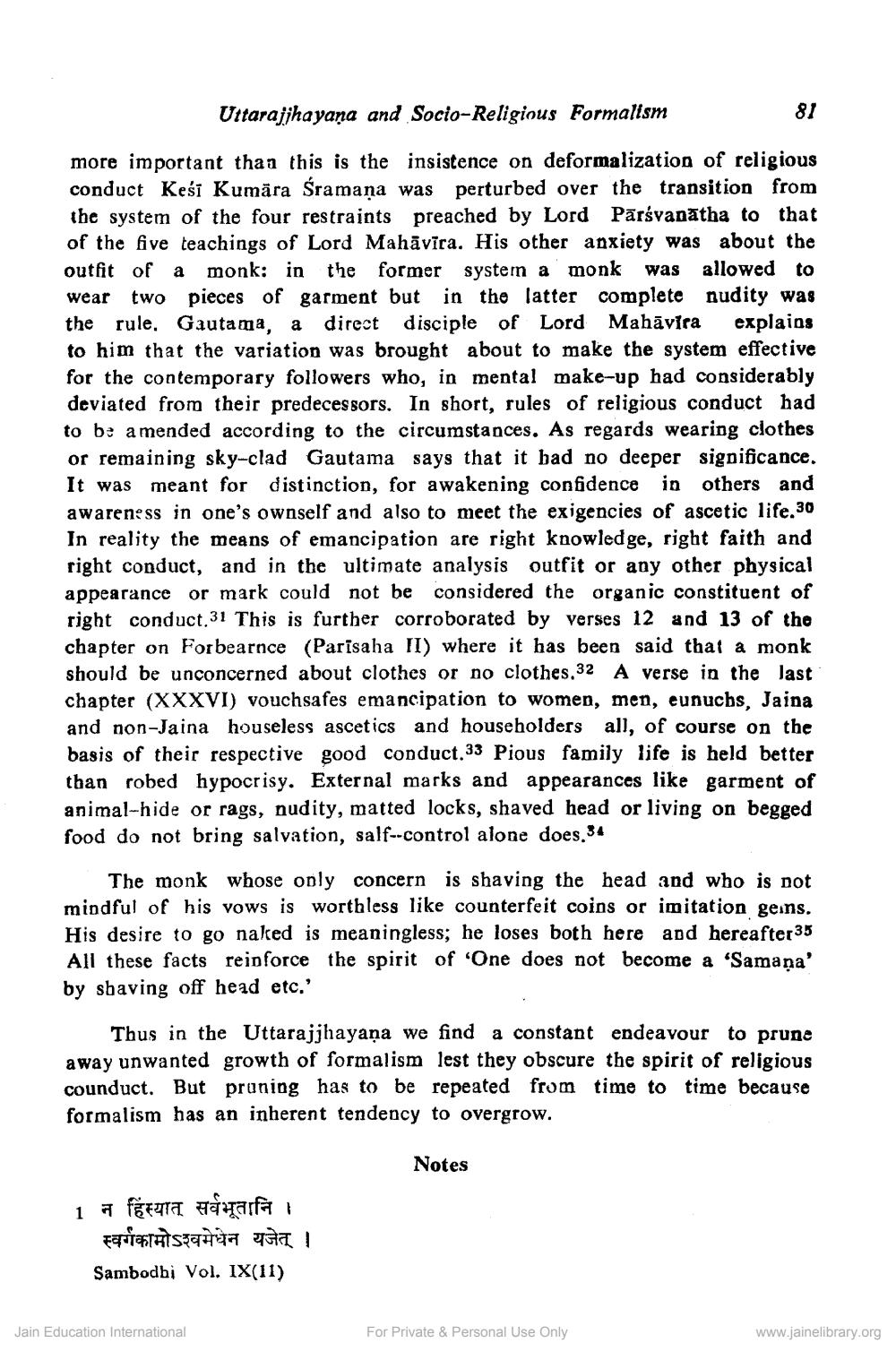________________
Uttarajjhayana and Socio-Religious Formalism
more important than this is the insistence on deformalization of religious conduct Keśi Kumāra Śramaṇa was perturbed over the transition from the system of the four restraints preached by Lord Parsvanatha to that of the five teachings of Lord Mahāvīra. His other anxiety was about the outfit of a monk: in the former system a monk was allowed to wear two pieces of garment but in the latter complete nudity was the rule. Gautama, a direct disciple of Lord Mahāvira explains to him that the variation was brought about to make the system effective for the contemporary followers who, in mental make-up had considerably deviated from their predecessors. In short, rules of religious conduct had to be amended according to the circumstances. As regards wearing clothes or remaining sky-clad Gautama says that it had no deeper significance. It was meant for distinction, for awakening confidence in others and awareness in one's ownself and also to meet the exigencies of ascetic life.30 In reality the means of emancipation are right knowledge, right faith and right conduct, and in the ultimate analysis outfit or any other physical appearance or mark could not be considered the organic constituent of right conduct.31 This is further corroborated by verses 12 and 13 of the chapter on Forbearnce (Parisaha II) where it has been said that a monk should be unconcerned about clothes or no clothes.32 A verse in the last chapter (XXXVI) vouchsafes emancipation to women, men, eunuchs, Jaina and non-Jaina houseless ascetics and householders all, of course on the basis of their respective good conduct.33 Pious family life is held better than robed hypocrisy. External marks and appearances like garment of animal-hide or rags, nudity, matted locks, shaved head or living on begged food do not bring salvation, salf--control alone does.34
The monk whose only concern is shaving the head and who is not mindful of his vows is worthless like counterfeit coins or imitation gens. His desire to go naked is meaningless; he loses both here and hereafter 35 All these facts reinforce the spirit of 'One does not become a 'Samana' by shaving off head etc.'
81
Thus in the Uttarajjhayana we find a constant endeavour to prune away unwanted growth of formalism lest they obscure the spirit of religious counduct. But pruning has to be repeated from time to time because formalism has an inherent tendency to overgrow.
Notes
1 न हिंस्यात् सर्वभूतानि । स्वर्गकामोऽश्वमेधेन यजेत् । Sambodhi Vol. IX(11)
Jain Education International
For Private & Personal Use Only
www.jainelibrary.org




